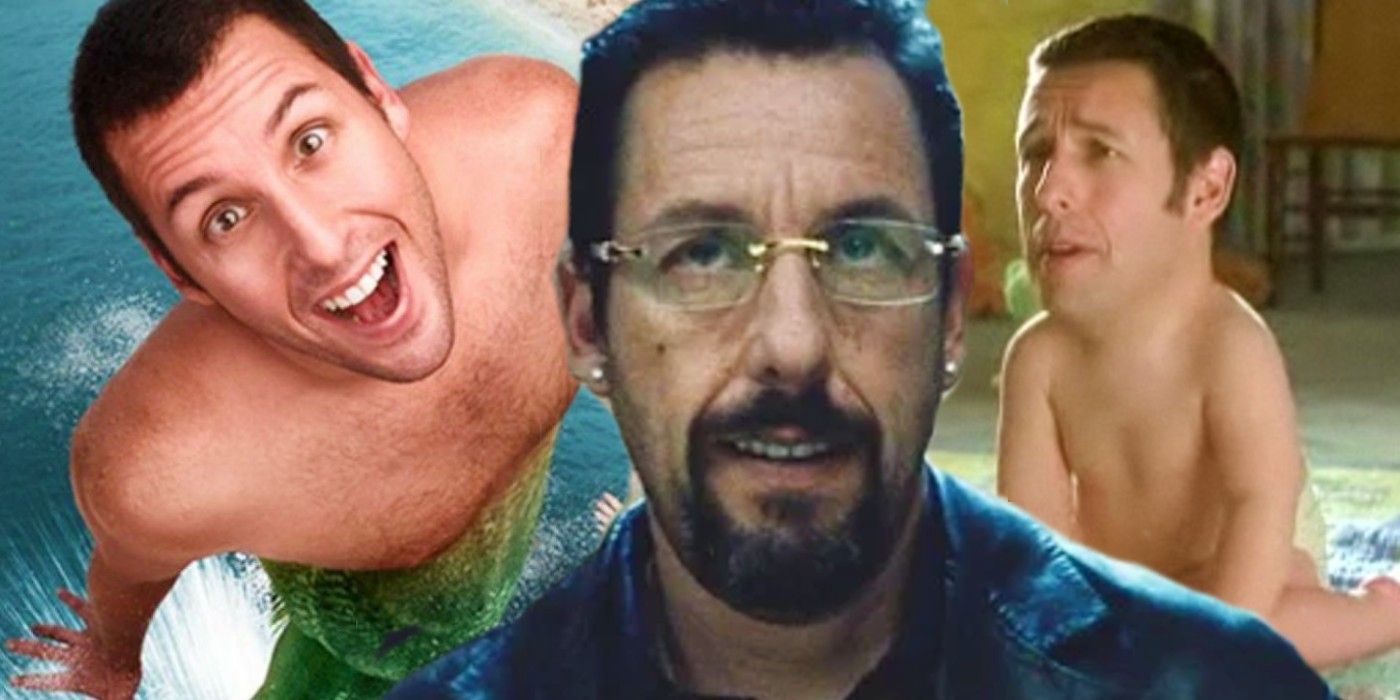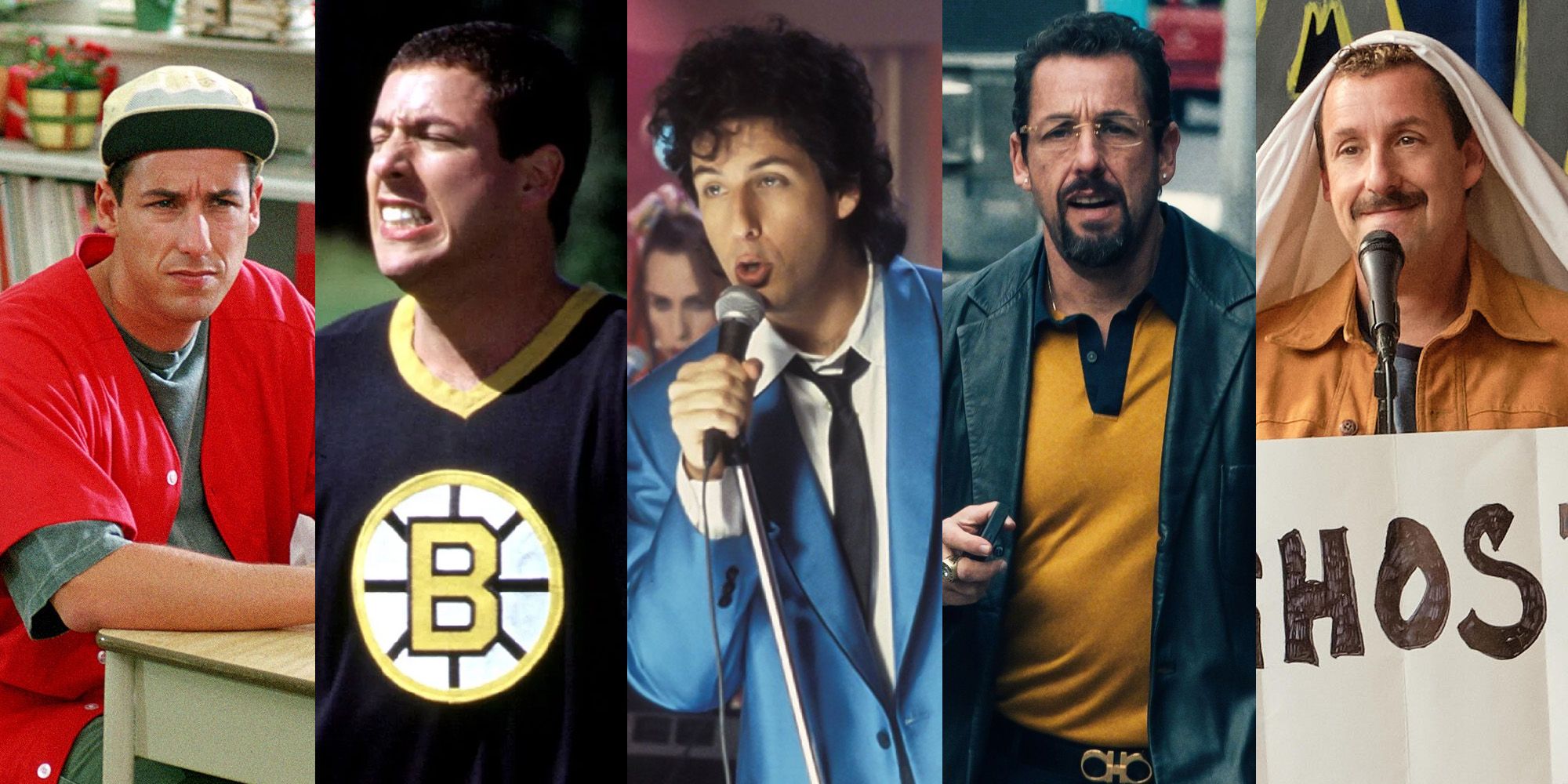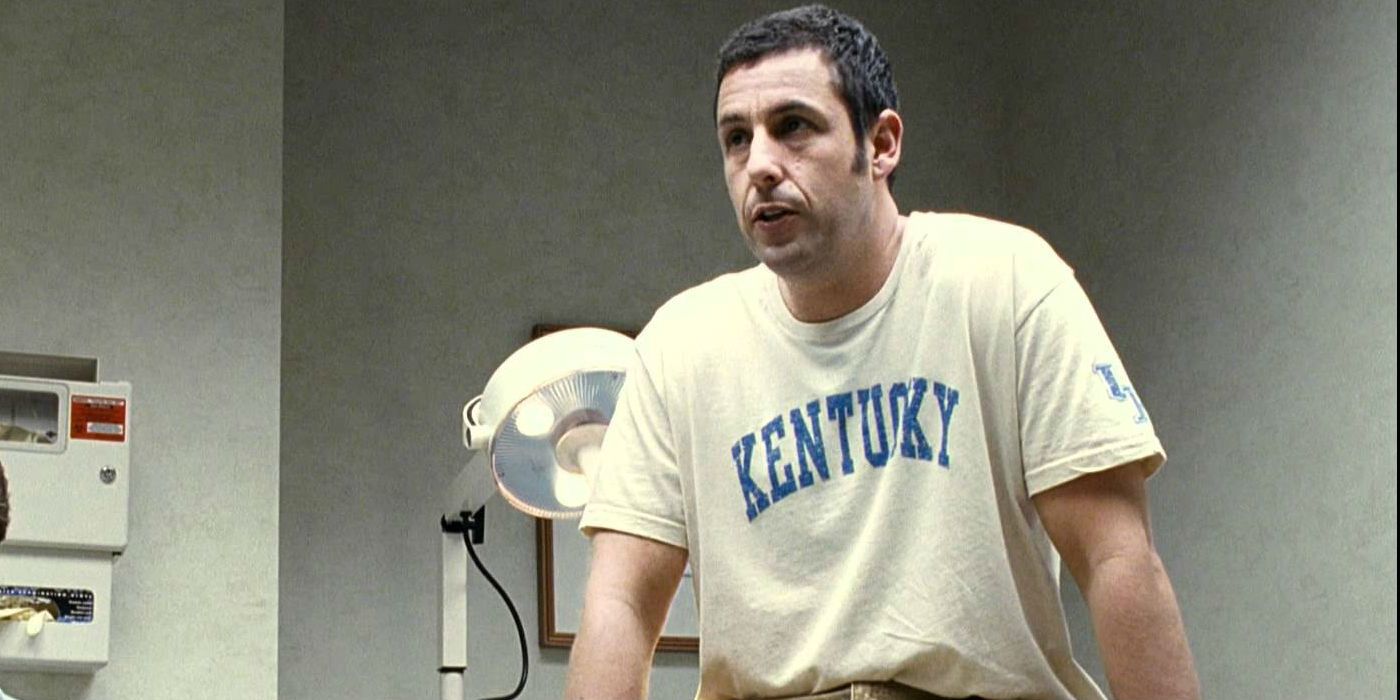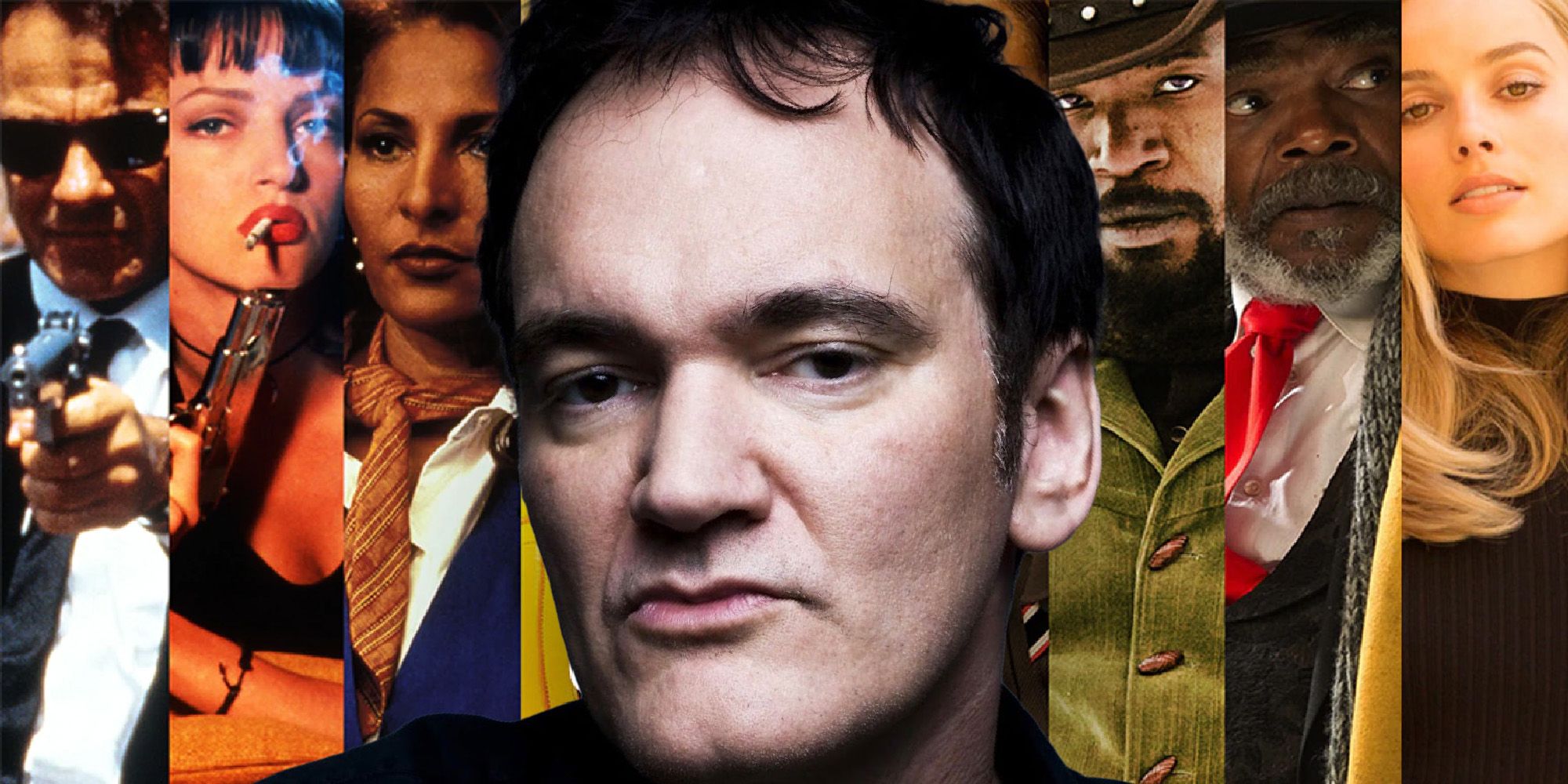Adam Sandler is an enigma of an actor who makes phenomenally successful comedy movies that often fail to land with critics with almost comedic effect, but what if he's secretly crafted a multi-layered multiverse of films? What if the critical performance of Sandler's movies could be attributed to the fact that the actor is completely aware of what he's doing and is, in fact, contributing to the body of work of an entirely different fictional actor established in one of his own movies?
Buoyed by a huge deal with Netflix for several movies (and a brilliant stand-up special), Sandler has made some of the worst reviewed comedy movies of the past record for the streaming platform. Most recently, Hubie Halloween managed to capture some nostalgia for his career (through Easter eggs and cameos) as well as raising the profile of Thermos flasks. It was far from the brilliant, challenging artistry of his previous film Uncut Gems, but it did what most of Sandler's Netflix fans want from those films: it was dependable and ticked the right boxes.
The idea that an actor as talented as Sandler would willingly limit himself to that sort of movie in the wake of Uncut Gems has been difficult for some of his fans to take. After all, being promised more talent in the vein of Uncut Gems and then watching Sandler play another comedy loser - loveable or not - with yet another silly accent going through lots of the same motions was rather jarring. That's not to say that Sandler's comedies do not have their value, but there has to be an explanation for why the spectrum of quality is so huge. And it may just come down to another actor called George Simmons and a multiverse theory that owes something key to Quentin Tarantino.
Adam Sandler's Movies Are All Linked
According to one particularly compelling theory, all of Adam Sandler's many films are connected, which partly explains why several characters appear in multiple Sandler movies. It also offers some explanation as to why the comedy star frequently relies on casts made up of his friendship group (a tactic employed to less cynical response by Wes Anderson, notably). Sandler himself has expressed interest in making a shared universe of movies but looking at the cameos crossing over film barriers, it could very much be argued that it's already firmly in existence. But unlike something like the Pixar Theory that ties all of the animated films together, or the MCU or DCEU that link them all in one conventional timeline (with annexes as branches are added, of course), Sandler's shared universe needs more of reasoning to establish the logic on which it's built. After all, Sandler himself never plays the same character in multiple separate films (ignoring sequels), so the question of a true multiverse has to come into play and it does so thanks to the actor's underappreciated sense of self-awareness.
Sandler Knows What You Think About His Bad Movies
Somewhat infamously, Sandler mounted an unexpected charge on the Oscars (and other awards, of course) thanks to the anxiety-riddled Uncut Gems. That doesn't necessarily prove anything about a multiverse in itself, but Sandler's claim that he would punish his fans and critics in the event that he didn't win an Oscar with the worst film he's ever made is important. It was just one hint at the actor being aware of how his movies are received, which is hardly surprising given Hollywood is a results business. Curiously, though, for most of his career, Sandler has appeared oblivious, enjoying himself (and the life he can provide for others through more work) over the appeal of critical awards or even box office results. They seemed like a means to an end, which is why the Sandler/Netflix deal that has so far inspired several movies looked like such a good fit: results no longer mattered with a static audience. But for Uncut Gems' marketing, the mask slipped and Sandler seemed to reveal he knew what everyone thinks of most of his films.
That much is also established in the horribly underrated comedy Funny People, which was far better than its box office suggested and a more fitting use of Sandler's skills than more recent mugging fare like Hubie Halloween. Whether because it was a little too cynical or Sandler's character was a little more mean-spirited than usual, the film didn't land with audiences, but it did feature Sandler's most self-aware work of all. In it, he played a stand-up comedy legend - George Simmons - who had sold out and was making terrible movies like Mer-Man, Re-Do and My Best Friend Is A Robot. In other words, he was playing himself, completely aware of the perception of his career and openly willing to laugh at himself. That's the founding key the entire Sandlerverse is based on.
The Sandlerverse Has Multiple Levels (Like Tarantino's Movies)
And what if those movies - including Little By Little, Astro-Not, Code Green, and Sayonara Davey - were actually part of the same multiverse as Grown Ups, Jack & Jill, and The Do-Over? What if Sandler's movies are set up the same as Quentin Tarantino's shared universe, whereby there are separate levels dictated by "real life" and the movies those characters watch in their own theatres. The nuance here, of course, is that those movies within movies are the work of George Simmons, which is why they're so terrible. When Sandler is acting by numbers, bringing in his friends for bit-part, goofball roles and is catering to the lowest common denominator, it's actually Simmons in the lead. Those movies are typically marked by recurring characters as an added nod to them not existing in conventional terms.
The Sandlerverse theory has to go further, of course, because of the issue of Sandler playing the central characters in each movie and not being the film-maker, like Tarantino, but that's where the multiverse comes in. The "movie realm" of George Simmons' movies are a constant, while everything else is a different branch of the universe, in which Adam Sandler makes movies of the calibre of Uncut Gems, Funny People, Reign Over Me, and The Meyerowitz Stories. Sure, it's self-serving to imagine unity based on quality, but it's telling that Sandler's best critically acclaimed movies tend to avoid the tropes most associated with a prototypical "Sandler movie" like a silly accent, a troupe of familiar friends in the cast. It's almost like a conscious decision to separate them into different types. Or, more pertinently, different levels.




